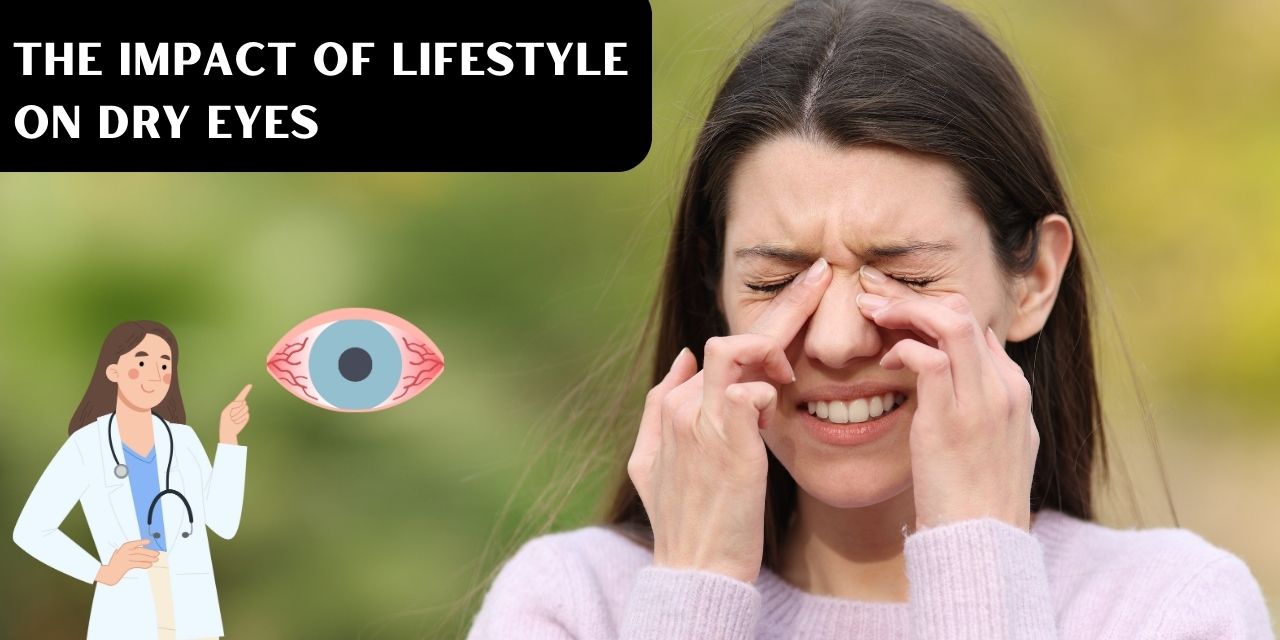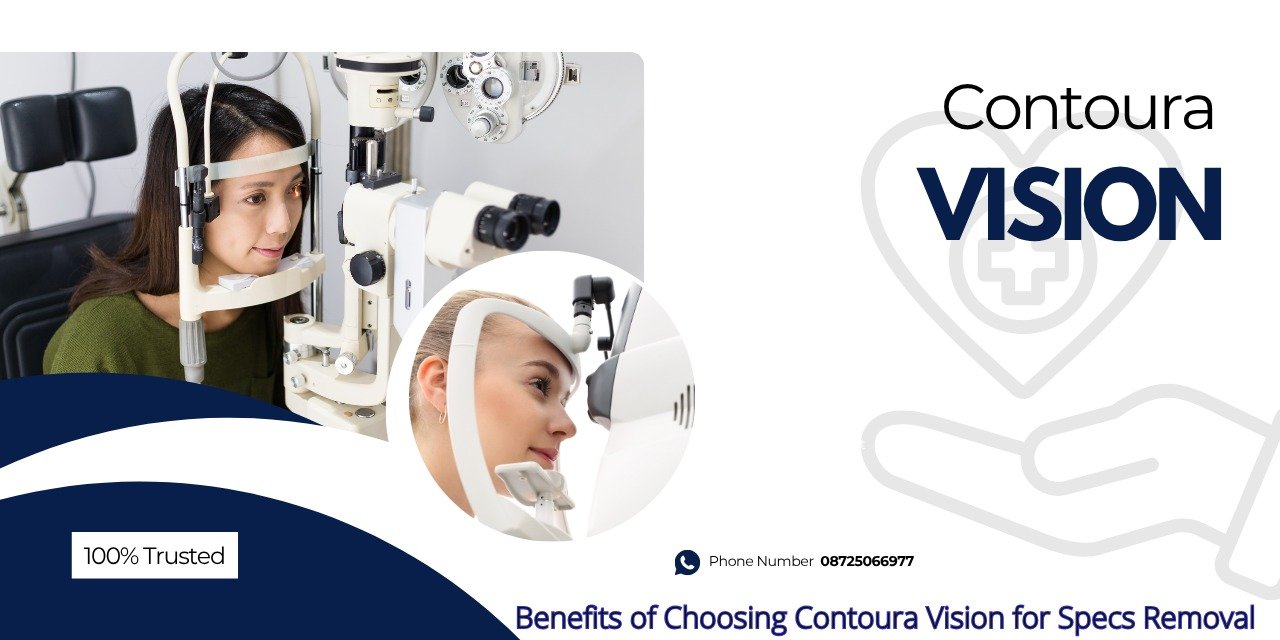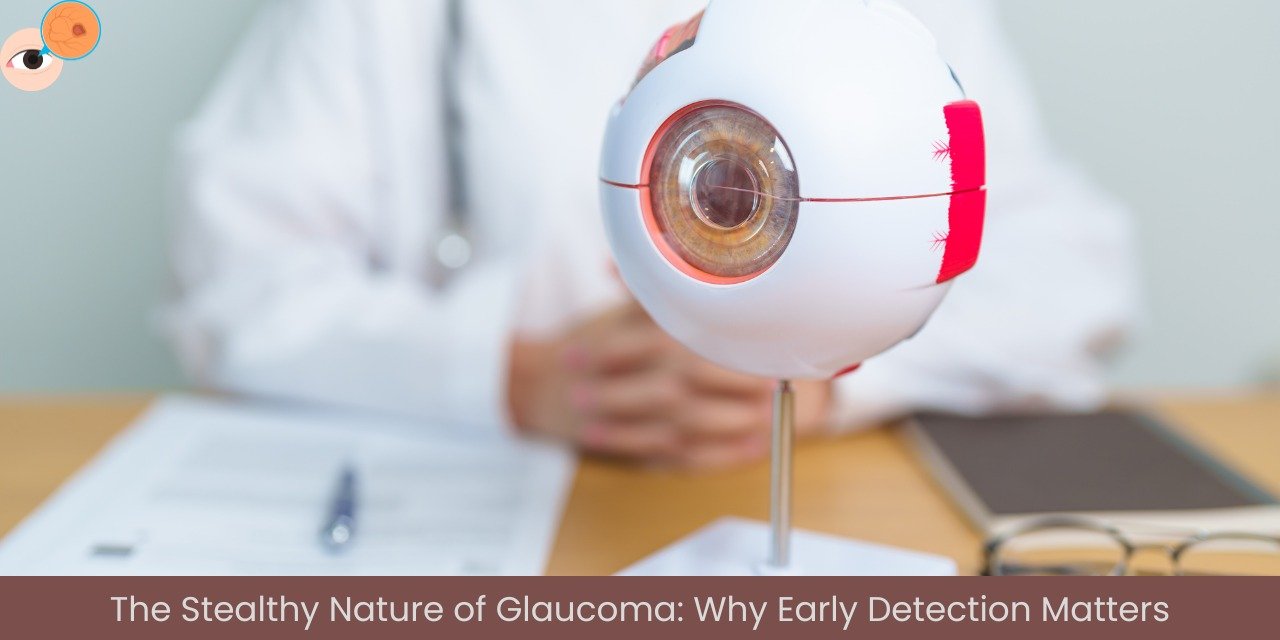Dry eyes are a common and often uncomfortable condition that affects millions of people worldwide. While there are many factors that can contribute to dry eyes, lifestyle choices play a significant role in both the development and management of this condition. Understanding how daily habits such as screen time, diet, and environmental conditions influence dry eyes can help you take proactive steps to alleviate symptoms and maintain eye health.
Screen Time: The Digital Dilemma
In today’s digital age, it’s nearly impossible to avoid prolonged screen time. Whether it’s for work, entertainment, or socialising, the average person spends several hours a day staring at screens. This constant exposure to computers, smartphones, and tablets can lead to digital eye strain, which is closely linked to dry eyes.
When you focus on a screen, your blink rate significantly decreases. Normally, blinking helps spread a thin layer of tears across the surface of your eyes, keeping them moist and comfortable. Reduced blinking means fewer tears are distributed, causing the tear film to evaporate more quickly and leading to dry, irritated eyes.
To combat digital eye strain and its impact on dry eyes, consider implementing the 20-20-20 rule: every 20 minutes, take a 20-second break and focus on something 20 feet away. Additionally, using artificial tears or lubricating eye drops can help maintain moisture and reduce discomfort.
Diet: The Nutritional Connection
Your diet plays a crucial role in overall eye health, including the management of dry eyes. Certain nutrients are essential for maintaining a healthy tear film and preventing dryness. Omega-3 fatty acids, found in fish such as salmon, as well as flaxseeds and walnuts, are particularly beneficial. These healthy fats help reduce inflammation and improve the quality of tears.
Antioxidants, including vitamins A, C, and E, also contribute to eye health. Vitamin A is vital for maintaining the health of the cornea, the outermost layer of the eye, while vitamins C and E protect the eyes from oxidative damage. Including a variety of fruits and vegetables, such as carrots, oranges, and spinach, can provide these essential nutrients.
Staying hydrated is equally important. Dehydration can reduce the production of tears, exacerbating dry eye symptoms. Aim to drink plenty of water throughout the day to keep your body and eyes well-hydrated.
Environmental Conditions: Adapting to Your Surroundings
Environmental factors can have a significant impact on dry eyes. Air conditioning, heating, and exposure to wind can all contribute to moisture loss from the surface of the eyes. For those who spend time in air-conditioned or heated environments, using a humidifier can help maintain moisture in the air and reduce the likelihood of dry eyes.
Outdoor conditions can also play a role. Wind and sun exposure can cause tears to evaporate more quickly. Wearing sunglasses or protective eyewear can shield your eyes from these elements and help retain moisture.
Additionally, smoke and other pollutants can irritate the eyes and exacerbate dryness. If you are frequently exposed to smoke or pollutants, consider using protective eyewear or taking steps to reduce your exposure to these irritants.
Practical Tips for Managing Dry Eyes
- Take Frequent Breaks: Follow the 20-20-20 rule to give your eyes regular breaks from screen time.
- Stay Hydrated: Drink plenty of water and incorporate foods rich in omega-3 fatty acids and antioxidants into your diet.
- Use Humidifiers: Maintain moisture in the air with a humidifier, especially in dry or air-conditioned environments.
- Protect Your Eyes: Wear sunglasses or protective eyewear to shield your eyes from wind, sun, and pollutants.
- Adjust Screen Settings: Reduce screen glare and use settings that minimize eye strain.
- Consider Artificial Tears: Over-the-counter lubricating eye drops can provide temporary relief from dry eyes.
Frequently Asked Questions About Dry Eyes
👉 What are the common symptoms of dry eyes?
Dry eyes often cause a gritty or burning sensation, redness, excessive tearing, blurred vision, and light sensitivity. Persistent symptoms should be evaluated by an eye care professional.
👉 How can I prevent dry eyes from worsening?
To prevent worsening, take regular screen breaks, stay hydrated, use a humidifier, and protect your eyes from wind and sun. Consider using artificial tears for added relief.
👉 How can Dr. Rohit P. Gupta help with my dry eye condition?
Dr. Rohit P. Gupta at Tricity Eye Hospital offers expert diagnosis and treatment for dry eyes. He can create a personalized care plan to address your symptoms effectively. For more details or to book a consultation, contact Tricity Eye Hospital in Kharar, Chandigarh, or Mohali.
Conclusion
Managing dry eyes requires a holistic approach that takes into account various lifestyle factors, from screen time and diet to environmental conditions. By making mindful adjustments to your daily habits, such as incorporating regular breaks from screens, maintaining a diet rich in essential nutrients, and protecting your eyes from environmental irritants, you can significantly alleviate symptoms and improve your eye health.
For personalized advice and comprehensive care, consider consulting with Dr. Rohit P. Gupta at Tricity Eye Hospital. As a leading specialist in eye treatment in Kharar and the surrounding areas of Chandigarh and Mohali, Dr. Gupta can provide tailored solutions to address your specific needs and help you achieve optimal eye comfort and health. If you’re experiencing persistent dry eye symptoms or require expert guidance, don’t hesitate to reach out to Tricity Eye Hospital for professional support.To get more information please contact us on : +918968248767













